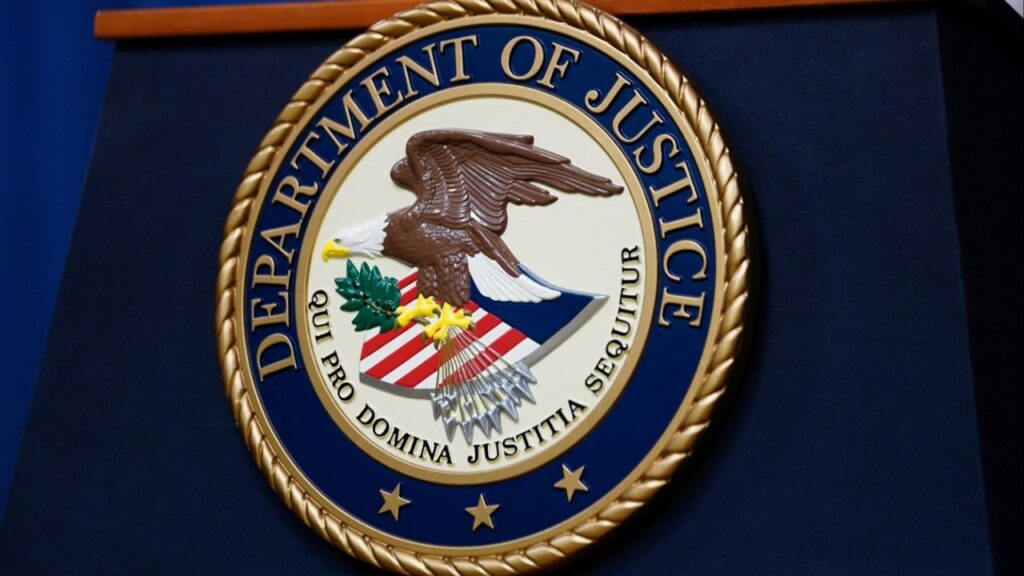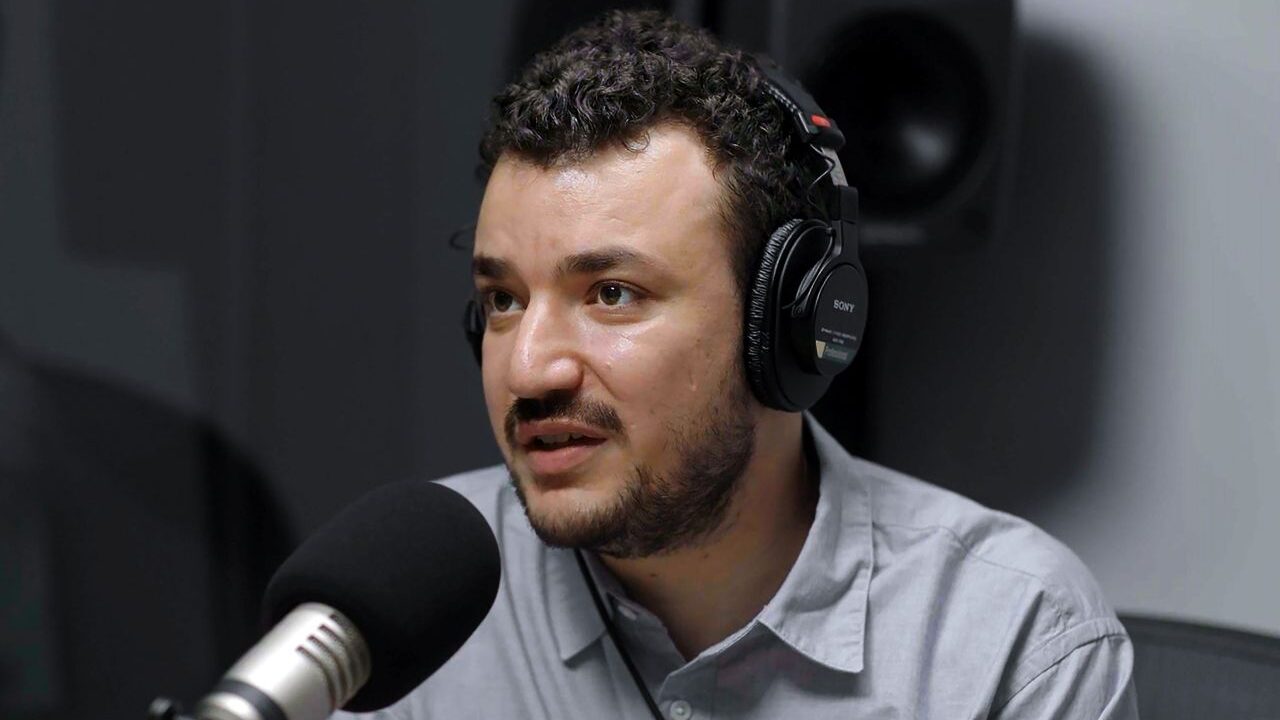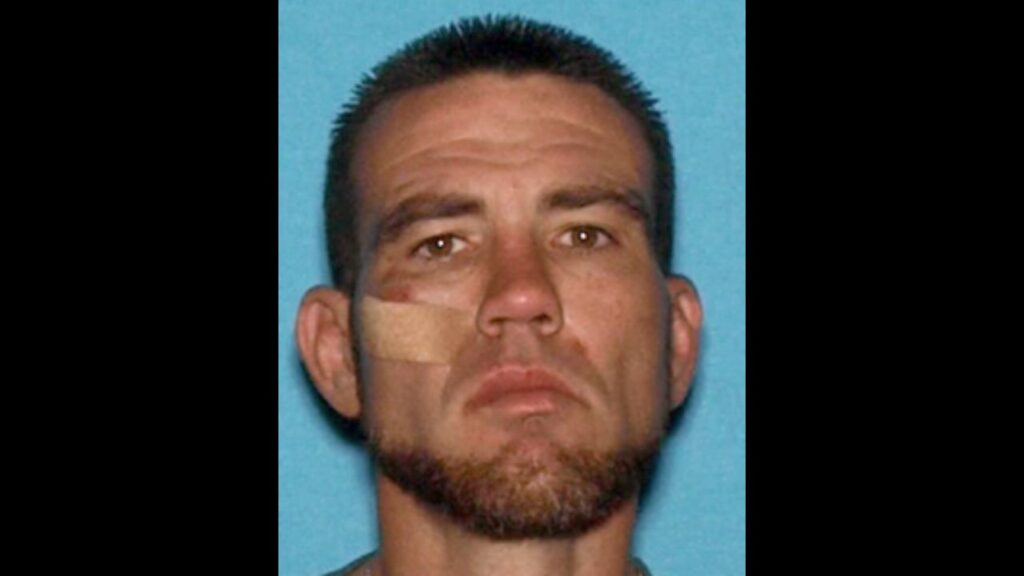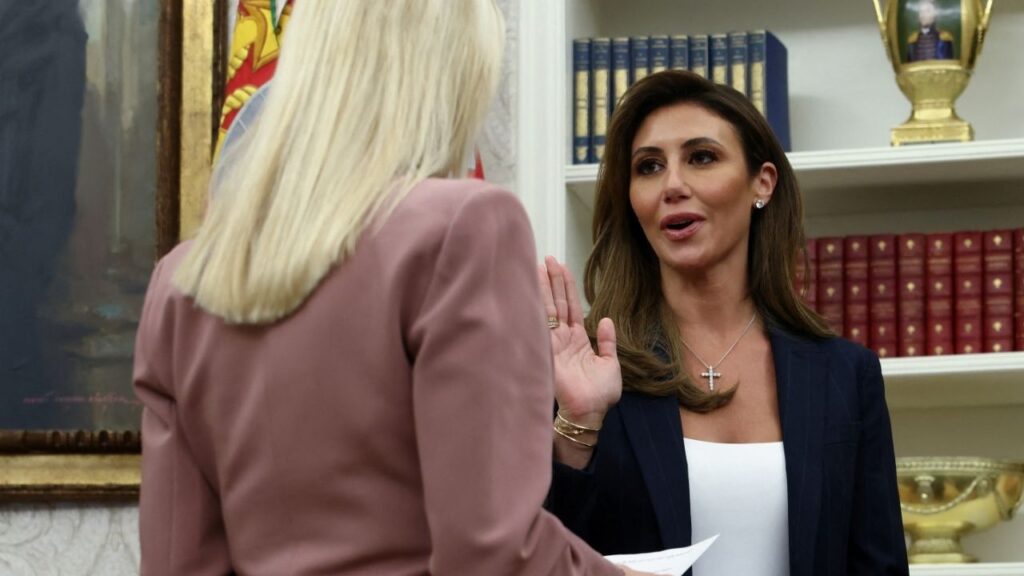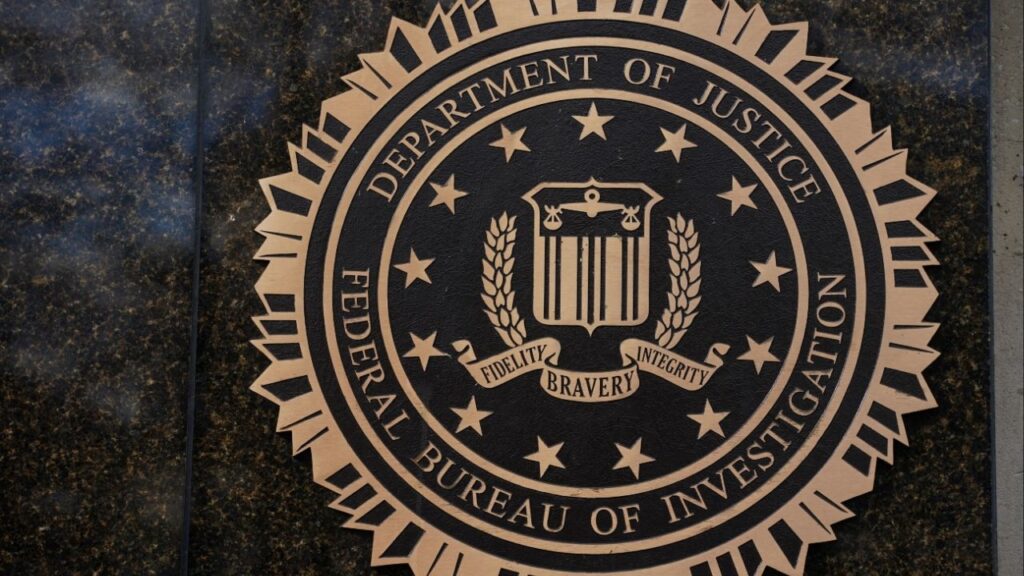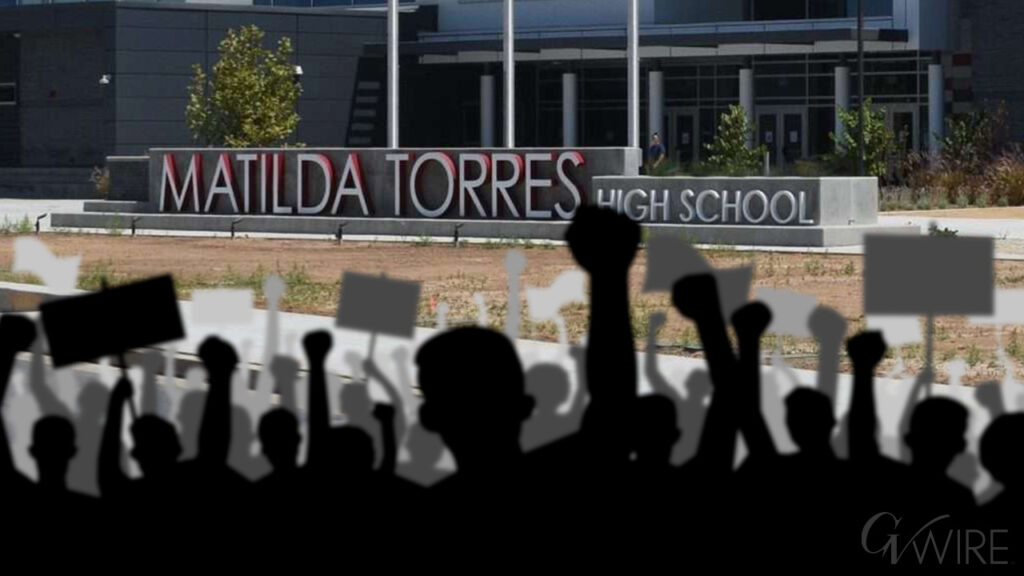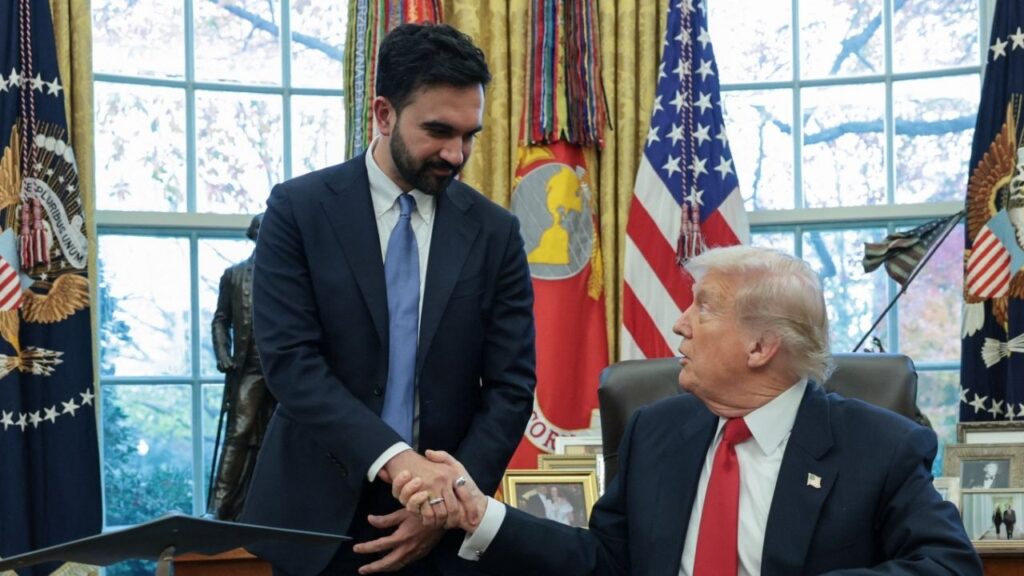Mahmoud Khalil, the Palestinian activist discusses the Columbia protests, ICE detention and free speech in America. Khalil is a green-card holder. He’s married to a U.S. citizen. His sole offense had been to speak out against Israel in a way this administration did not like. He was detained under the U.S. secretary of state’s authority to cancel the residency of noncitizens who threaten U.S. foreign policy. (The New York Times)

- New York Times columnist Ezra Klein writes, "If federal officials could do this to (Mahmoud ) Khalil, could they do it to me?
- Khalil outlines the event of March 8, when he returned home from a dinner accompanied by his wife.
- Khalil says he was moved from New York to New Jersey, back to New York, and then to Texas and Louisiana "in a matter of 30 hours."
Share
|
Getting your Trinity Audio player ready...
|
Across the 2024 election, Donald Trump and the people behind him said again and again that they were here to restore free speech to this country. Then they got power. And his administration came after speech in a way that the left never dared to do — never wanted to do.

Ezra Klein
The New York Times
Opinion
You saw it with the hunt to cancel any grant that had the word “diversity” anywhere near it. You saw it as countless organizations that depended on — or feared — the government began reworking their mission statements or censoring their websites to avoid any words that might offend anyone in this administration. You saw it as border agents looked through travelers’ phones to see if they had said anything that the administration wouldn’t like. And you saw it as immigration agents began yanking people off the streets — for the crime of nothing more than speech.
Among the first of these people was Mahmoud Khalil, a Palestinian graduate student at Columbia University who had been a leader in the school’s anti-Israel protests.
Khalil is a green card holder. He’s married to a U.S. citizen. His sole offense had been to speak out against Israel in a way this administration did not like. He was detained under the U.S. secretary of state’s authority to cancel the residency of noncitizens who threaten U.S. foreign policy.
Did this grad student at Columbia actually threaten U.S. foreign policy? Is that how fragile our foreign policy is?
No one really believed that.
Khalil was not followed into his building by plainclothes officers and taken to an ICE detention center in Louisiana for more than 100 days — imprisoned there while his wife gave birth — because the U.S. government feared him. He was imprisoned there because the U.S. government wanted others like him to fear it. It wanted noncitizens and immigrants to stop speaking out.
It wanted everyone to ask: If federal officials could do this to Khalil, could they do it to me? If they could detain him on such flimsy grounds, could they not come up with a reason to detain me?
Khalil is now out on bail. He is still speaking. So I wanted to hear what he had to say and interviewed him for my podcast, “The Ezra Klein Show.” This is an excerpt from our conversation, lightly edited for length and clarity; you can find the full version wherever you get your podcasts.
Ezra Klein: Walk me through what happens on March 8.
Mahmoud Khalil: On March 8, I was coming back from an iftar dinner with my wife, and I entered the lobby of my building. Then I noticed that someone was following us.
They asked me, “Are you Mahmoud Khalil?” And I was like, “Yes. Who are you?”
They said, “We are the police.” I was like, “What police?” Because they were in plainclothes. There were two at that point. Then they said they were with the Department of Homeland Security and my visa had been revoked.
I said, “I don’t have a visa. I’m not here on a visa. I’m a green card holder.”
He looked very confused at that point, and he called in someone else. So at this point, there were four people. I asked if they had any arrest warrant or anything to show me, and they refused to do that. They threatened Noor, my wife, with arrest if she didn’t leave.
So Noor went to get my green card because it wasn’t on me at that point. They were just confused about the green card part of this. And when Noor brought it, and they saw it, he looked even more confused.
So he had to call someone, and that someone told him: Bring him anyway.
During all that period, I was chill. I was very calm. I’ve dealt with power all my life. I knew I didn’t do anything wrong. I thought, given their first comment about the visa, maybe this is just a misunderstanding. I would go to the office, and it would be solved.
But I was very scared because they were wearing plainclothes. The cars were unmarked cars. I was taken to their office in New York, and five hours later, they showed me that there would be a termination — that my presence in the United States presents, I think — I can’t remember. But it’s a foreign policy threat.
Klein: Here, I’ll read it. The provision here that they’re working off, the Trump administration, is, “An alien whose presence or activities in the United States the secretary of state has reasonable ground to believe would have potentially serious adverse foreign policy consequences for the United States is deportable.”
Khalil: Exactly.
Klein: So they show you that?
Khalil: After five hours. And I laughed when I saw it. I was like, “What are they doing?” Even the officer shrugged while giving me the NTA, the notice to appear.
But at the same time, I heard someone approaching the officer that the White House was requesting an update, and I requested endless times to call my lawyer.
I told him I want to talk to my lawyer before signing, just to know what’s happening. And they refused.
Then they moved me to New Jersey, then back to New York, to JFK, to Texas, to Louisiana — in a matter of 30 hours.
Klein: Wait, say that again? They moved you from JFK …
Khalil: To Texas.
Klein: To Texas …
Khalil: To Louisiana.
Klein: In 30 hours?
Khalil: In 30 hours. So everything was very quick, without me knowing where I’m going. I was shackled. And you’re expected to follow orders, so …
Klein: Had you been given a lawyer, an opportunity to call someone?
Khalil: Nothing. Nothing at all. These practices were present in Syria, where you have a security branch kidnapping you from the street or disappearing you and arbitrarily detaining you.
I never felt that this would happen to me in the United States — where they would show up without any arrest warrant, without anything, and just take me.
That’s why I keep saying it felt like a kidnapping. Because from Saturday evening until Monday morning, I had no contact with anyone. No lawyers, no family, nothing.
The last thing I heard from them — when they were taking me to the car, they were threatening Noor with arrest. And she was eight months pregnant at that time. And that was the only thing I was thinking about during these 30 hours: Did they arrest Noor? Is the baby OK? Is she OK?
I wanted answers, but they refused to give any answers. And I was, again, shackled and expected to just follow orders. I only knew that I was going to Louisiana when we were boarding the plane.

Klein: Tell me about what happens in Louisiana.
Khalil: I didn’t know where I was going. Like, is it a jail? Is it an office? Is it a detention center for immigrants? I didn’t know any of that.
So when we arrived there, we arrived at 1 a.m. We get to the detention center, and they put me in this dorm with over 70 men.
In the morning, I learned that this is an ICE detention facility and that everyone here is undocumented or they are here because of their documents. I felt better because now I can talk to people and ask what’s happening. I can see there’s a phone.
So when I woke up, I went to ask someone how I can operate the phone, and I called Noor. I just wanted to know, is she going to pick up? Not, like, what’s happening in the outside world?
Noor picked up, and we talked, and the first thing she told me was, “The White House has tweeted about you.”
Klein: What did Trump say about you that day?
Khalil: “Shalom, Mahmoud.”
Klein: Right. I remember that tweet.
Khalil: Yes. He later said a lot of things about my being a Hamas sympathizer. Rubio said young aspiring terrorist or something like that.
It felt like within a couple of days, the media was painting a totally different image of who Mahmoud Khalil is. The dehumanization of such tweets and such a portrayal in the media was so difficult to me on a personal level.
But I kept asking, “Is what’s happening legal?” I fled Syria fearing political persecution to come to the United States to face the same fate of political persecution.
Klein: Do you have a view on why it was you? I will say — because I had to prepare for this show — I needed to make sure I knew the really inflammatory things you’ve said.
And I found inflammatory things said by people near you at different times. Or by an Instagram account that’s part of a group you’re a part of. That kind of thing. But I couldn’t find that much from you.
Khalil: Yes. I joked with a couple of friends before my detention that I would be Trump’s perfect target if he wanted to do anything regarding that. But it was a joke; I didn’t think that …
Klein: Why would you be his perfect target?
Khalil: A Palestinian. My name is Mahmoud, and I was vocal in the media. That’s the perfect target to make an example out of. Because it’s not about me. It’s not because he hates me. It was just the perfect recipe to make an example out of because the main goal of targeting me is to chill speech in this country. To make an example out of me, that even if you are a permanent resident, you’re not safe. That we have ways to come after you.
That’s the main message that they wanted to deliver by targeting me.
The other thing is because I present a different narrative than what the Israel lobby and this administration wants to show — that Palestinians are violent; Palestinians just want to bomb things.
But I presented a different reality to that — that we know what we’re doing. We want justice and freedom and dignity for everyone. That we are educated, that we are doing this from the strong belief in human rights and in the dignity of all people.
Klein: I want to go back to the Rubio termination notice.
The legal grounds here are that someone — an alien, in the language of the law here — who the secretary of state has reasonable grounds to believe would have potentially serious adverse foreign policy consequences for the United States.
I’ve tried to look at what the Trump administration has said about the justification of this. They’ve offered a few. One is a view that fighting antisemitism is a foreign policy priority of the United States, and that you are antisemitic and that your presence here is then in conflict with that priority.
How do you respond to that?
Khalil: It’s just baseless. There isn’t any truth to that, and it’s absurd. In fact, what is a threat to combating antisemitism in this country is this administration’s unconditional support to a country that’s committing a genocide in the name of the Jewish people. They’re trying to conflate antisemitism with anti-Zionism, with anti-Israel policies or sentiment.
The same way they’re also trying to now conflate pro-Palestine activism and pro-Hamas speech. That’s their main goal. But a federal court judge said that it’s likely unconstitutional that the administration targeted me.
I’m not sure how much you know, but this provision was used in the 1950s to go after Jewish immigrants in this country.

Klein: You touched on this glancingly, but one of the arguments they’ve made about you is — I think the word they used was “aligned”: The activities are aligned with Hamas. And Hamas is a designated terrorist organization under U.S. law. So again, that would make you potentially in conflict with American foreign policy.
Khalil: This goes again into the attempt by this administration — or just Israel, in general — to group pro-Palestine activism with supporting Hamas, which is not true.
What I stand for, what I’m advocating for, is the end of the genocide, the end of the occupation, the end of the apartheid regime and the end of complicity of Columbia University in this regime.
As simple as that. I don’t know how that makes me aligned with Hamas or with anyone, but that’s what I stand for.
Klein: Another thing has become more present in the administration’s rhetoric, and not just about you. JD Vance just gave a speech about citizenship where he makes this point about Zohran Mamdani, and it has become a more significant part of the rationale for a lot of what they’re doing, which is: Being in America is a privilege; it’s not a right. And that the right response to that privilege, that gift — you came here fearing persecution in other places — is gratitude, not protest.
They believe it weakens America to allow the presence of immigrants who are critiquing what America is, what America’s foreign policy is.
Maybe — I think only maybe — but maybe citizens are allowed to do that. Maybe native-born Americans are allowed to do that. But you, here on the largesse of the American government, you should be quiet and grateful and treat your presence here as a privilege. And they have decided to start deporting people who don’t.
How do you think about that argument?
Khalil: This is a very dangerous argument.
This is then about selective democracy — selective rights to people.
This administration is trying to target anyone who doesn’t fit the very narrow definition of what an American should be or who is a real American in this country.
If you don’t look like Stephen Miller, then you’re not an American. That’s eventually what they want us to do.
Same with the privilege part of it. It’s a privilege of the law — not a privilege of the administration — to be in this country. I’m married to an American citizen who was born in this country. My son is American. So I get that privilege from the law.
This is how this administration is trying to portray everything right now — that anything is a privilege. Federal funding is a privilege. Medicare is a privilege. Birthright citizenship is a privilege. Freedom of speech, due process is a privilege.
This is very dangerous because you can’t have a democracy for some. It’s not democracy, then. It’s just — I’m not sure of a word to describe that, but it’s absolutely not a democracy. It would just be an autocracy.
This article originally appeared in The New York Times.
By Ezra Klein
c.2025 The New York Times Company
RELATED TOPICS:
Categories
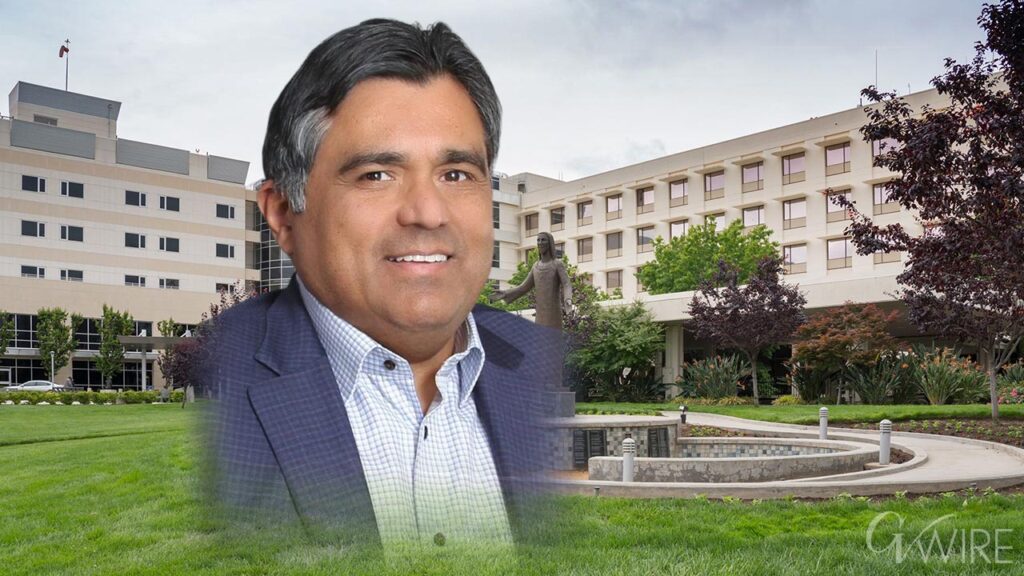
Saint Agnes Names New Vice President of Operations
